Q&A: NI voters in general election 2017
- Published
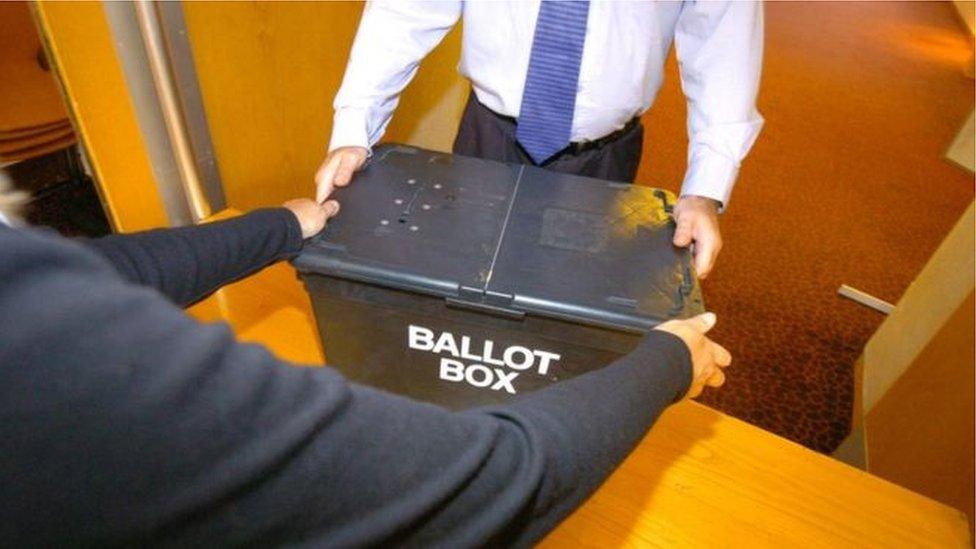
June's general election will be the seventh poll in three years for voters in Northern Ireland
There is only a couple of weeks to go before voters across the United Kingdom head back to the polls in the 2017 general election.
But with Brexit looming and a continuing stalemate at Stormont, what are the key electoral issues for people in Northern Ireland - where this will be the seventh poll in three years?

What issues will dominate the campaigns?
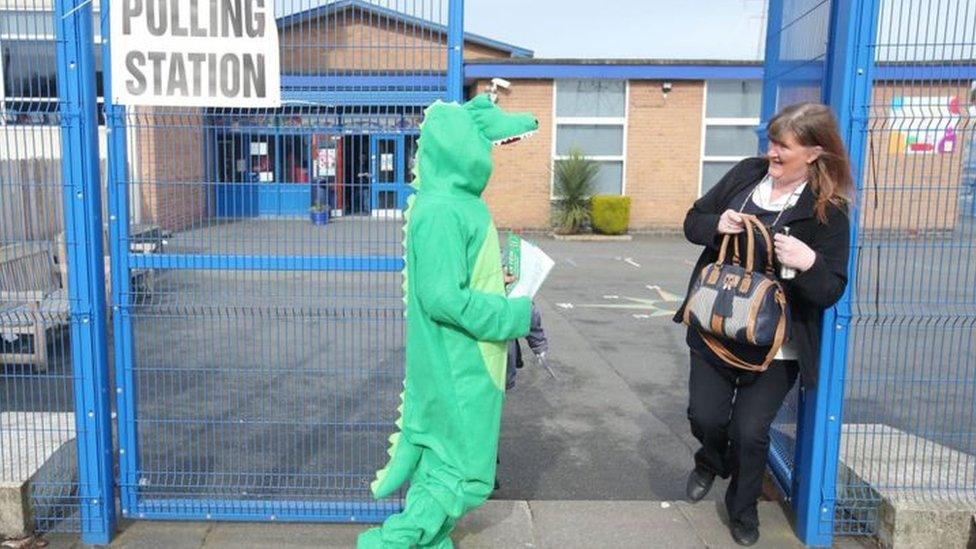
There was a significant increase in the nationalist vote in the 2017 assembly elections in Northern Ireland
This election campaign is likely to have an even stronger focus than usual on whether unionism or nationalism is "winning".
The significant increase in the nationalist vote in the assembly election in March - when Sinn Féin finished just one seat behind the DUP - means there is likely to be plenty of emphasis on the constitutional question.
Sinn Féin want a referendum on Irish unity - though that has been ruled out by the British and Irish governments.
Unionists say it is important that voters send out a pro-union message to head off the demands for a border poll.
Brexit is a big part of the reason why constitutional issues have come to the fore again - it is a major issue for parties and voters.
Health, the economy and education will also be talking points, as they are throughout the UK - but there are some issues which are specific to Northern Ireland.
These include legal recognition for the Irish language and the operation of new agencies to investigate killings during the troubles - which are the matters that have proved to be sticking points in the talks to restore devolved government at Stormont.

How will the election impact power-sharing talks at Stormont?
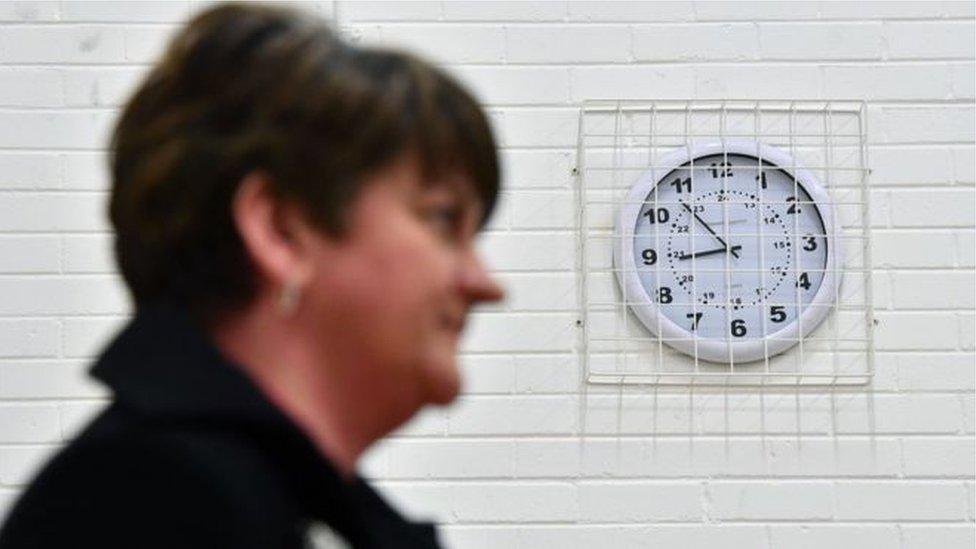
The new deadline for an agreement is 29 June
The five largest parties in Northern Ireland and the British and Irish governments have been involved in negotiations to restore devolved government for a number of weeks.
Several deadlines have already been missed - and now the talks have been put on hold until after the general election.
The new deadline for an agreement is 29 June.
So, the parties will have a window of about three weeks after the poll to reach a deal.
At election time, parties in Northern Ireland tend to harden their positions on contentious issues in order to appeal to their core support base - so it is likely that a divisive campaign will not improve the prospects for restoring Stormont.

What will be the impact of party pacts?
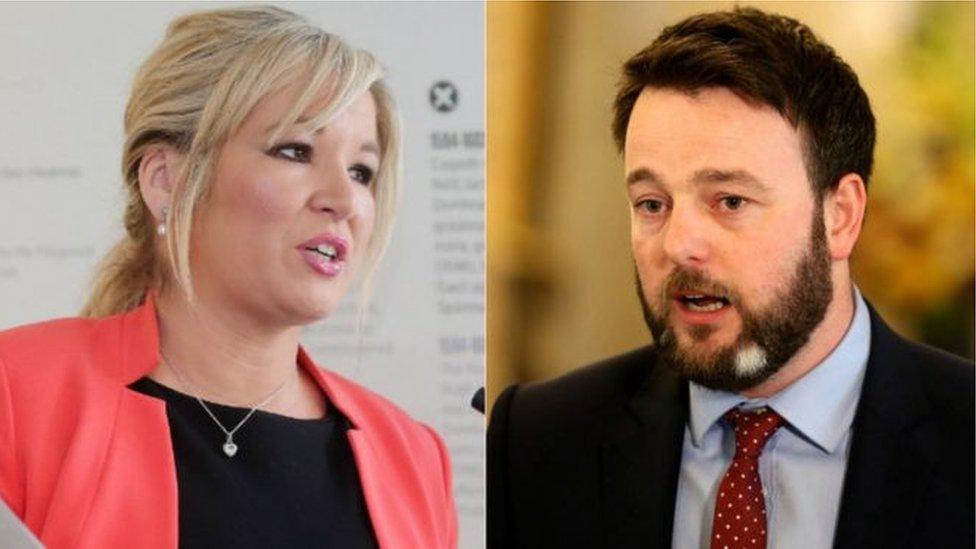
The SDLP, Sinn Féin and the NI Green party failed to strike an anti-Brexit deal
The Ulster Unionist Party has decided not to run in North Belfast, West Belfast or Foyle and the DUP has decided not to contest Fermanagh/South Tyrone.
But they have been unable to conclude a formal election pact. as they did in 2015.
The SDLP, Sinn Fein and the Green Party held discussions on the possibility of an "anti-Brexit pact" - but there was no deal reached there either.
Sorry, your browser cannot display this content.

Who is running Northern Ireland?
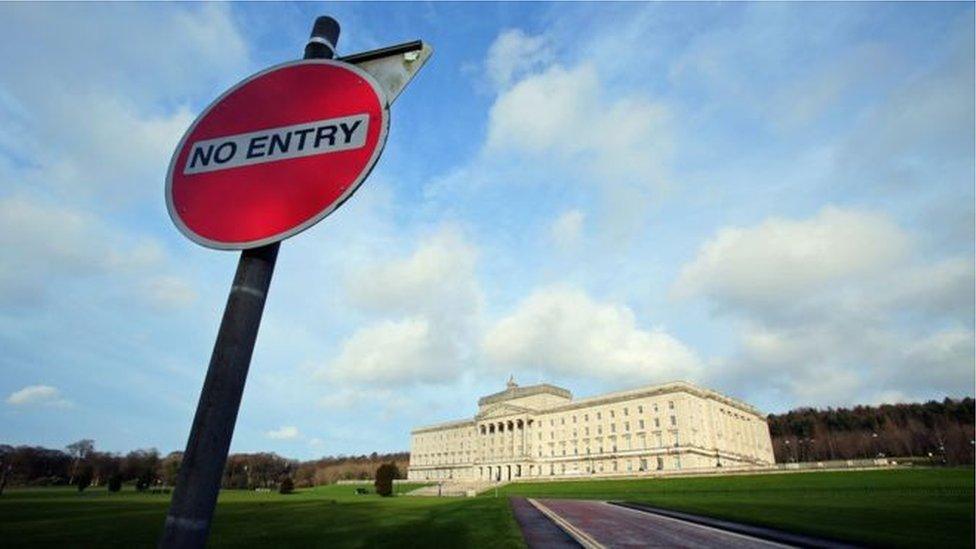
Civil servants are essentially keeping Northern Ireland ticking over but they cannot take major decisions
Northern Ireland is in an unprecedented administrative vacuum.
There are no Stormont ministers in place and the Westminster parliament has been dissolved.
Civil servants are running the Northern Ireland government departments, but they can not take any major decisions.

How do voters feel about being called to the polls for the seventh time in three years?
One online satirist has said that a sign should be put up at airports in Northern Ireland welcoming tourists to "the election capital of Europe".
Since 2014, there have been elections to councils, the European Parliament, the Stormont assembly (twice), the EU referendum, a general election, and now another Westminster poll is pending.
But the 65% turnout for the Stormont election in March showed voter fatigue had not put people off coming to the polls - in fact, it was the highest turnout figure in Northern Ireland for 16 years.
If - as unionist parties hope - pro-union voters turn out in higher numbers on 8 June to counter the nationalist surge which happened in March, overall turnout may be higher still.